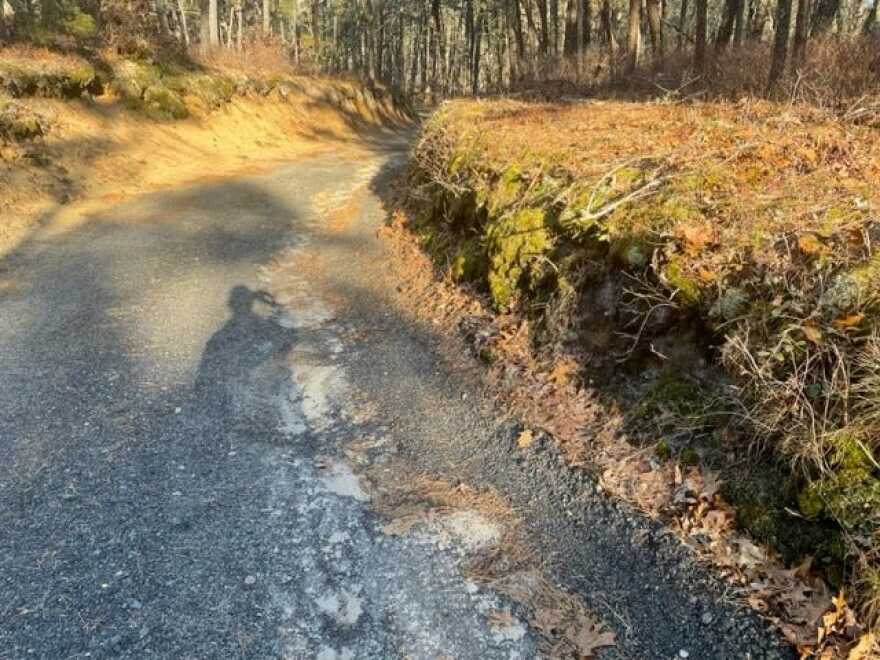In the woods, old dirt roads don’t talk but they do mutter and grumble even as they pretend to be silent. In low tones they invoke times older than this nation.
This is true especially where roads and paths have existed for so long they are sunken feet below today’s surface. Generations of people, animals, carts, and cars have compressed and compacted their dirt. Slow traffic also prohibits the slow building of soil and roots that elsewhere create a thickening blanket, inches of insulation a year, decade by decade.
And so at many moments our dirt roads, ancient by Cape European standards, become lined with walls, mini ramparts and puny palisades, mossy mounds, pine root fingers splayed and holding back sand.

Of course this is not as dramatic as canyons carved by great rivers over millennia, miles-long descents into earth and the past like the Rio Grande creates. As with most things Cape Cod our roads do not shout out in dramatic scale. They require attention and focus to be appreciated, but in Bonsai ways they are evocative, layered.
Their sheered sides express our version of time.
Some of these backwoods roads boast names like Old Kings Highway, offering a sense of their importance centuries ago. This is part of the intrigue of living here, trying to invoke what once was, imagining small villages that have disappeared or become modern, understanding that Schoolhouse Road and Railroad Way were named for landmarks long gone, letting your gaze sweep across a landscape that had no trees, meandering down ribbons and veins that are vestigial access to places that no longer pulse with people.
So the roads mutter, and grumble.
When I lived in Jamaica I used to roam from seaside into the hills. Bush and forest were dense but there still was a broad, overgrown way lined with stone wall remnants, built in “first time days” as Jamaicans would say, wide enough back then for two carts to pass in opposite directions. Only donkeys and humans on foot can traverse it now, but I knew it had been built by slaves to move sugar cane from a plantation where a decrepit Great House still loomed, occupied by Jamaican squatters.

That road does not mutter or grumble. It groans and gasps from the pain of those who laid the rockstone, carried the weight. It moans invoking whips used to speed the work and way.
Our roads are as old as that one, and have seen their share of pain and suffering. But not like that, not like that.
Ours speak of New England hardships, tough people more aligned with the sea than land, families facing loneliness by hearth and on deck, hopefully sharing love, tamping paths.
When we do the same, taking a moment and slow breath, we are lucky enough to experience the depth, real and symbolic, of a road in the forest.








